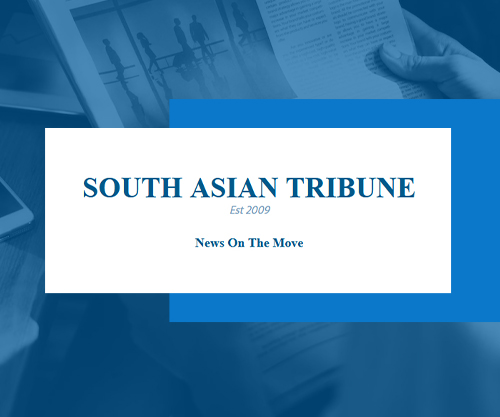US Take on Afghan, Lanka, Pakistan

US State Department’s press briefing on May 10 covered Pakistan, Myanmar, Afghanistan, and Sri Lanka besides the usual hotspots that range from Sudan to Ukraine.
Excerpts
QUESTION: Mr. Price. First of all, thank you very much for yesterday’s – your answer. Afghan women, they are so happy. But they still ask me and ask you that what option United States will bring to Taliban if they didn’t fix themself about women’s job. This is regular job that every Afghan do it, we don’t have any problem, but like that, it’s unacceptable for Afghan women. And also, Afghan people ask, based off your opinion: Why United States failed to fix Afghanistan during these 20 years? Thank you, sir.
MR PRICE: Thank you. So let me start by following up on the conversation we had yesterday about some of the very disturbing, very concerning edicts we’ve heard from the Taliban. Of course, what we’ve heard in recent days regarding the requirement for women’s attire, what we’ve heard about the restrictions on girls attending secondary schools, and other steps – all of these have been deeply concerning. And it’s not only concerning to us; in some ways, much more importantly, it is much more important that it is deeply concerning to Afghans across their country, across Afghanistan. They have voiced their opposition to this edict that proposes severe limitations on half of Afghanistan’s population, and that effectively limits and constricts the ability of half of Afghanistan’s population to participate fully in Afghan society.
So combined with the continuing ban on girls’ secondary education, restrictions on freedom of movement and targeting of peaceful protesters, the Taliban’s policies towards women are an affront to human rights and they will continue to impair their – the Taliban’s relations with the international community, including with the United States. We are discussing these developments with our partners around the world. The legitimacy and support the Taliban seeks from the international community, they know that it depends on their conduct, including and centrally their protection on the rights of women and girls.
These are commitments that the Taliban has made privately. These are commitments, again, much more importantly, that they have made publicly to their own people, and these are the commitments on which we are going to base and we are going to judge any future relationship that we will have with the Taliban. And we know that other countries feel similarly. Other countries with whom we’ve worked closely on Afghanistan since August of last year and well before August of last year do feel similarly.
In the interim, we’ve paused nearly all senior-level engagement with the Taliban in response to the Taliban’s decision in March to prevent girls from attending secondary education. We do remain concerned about these other restrictions that we talked about. We believe, first and foremost, that the Taliban should respond to the Afghan people whose rights the Taliban have pledged, once again, publicly to respect. We have heard that very message from our Afghan partners in recent days. Tom West, our special representative for Afghanistan; Rina Amiri, our special representative for Afghan – for women and girls; Ian McCary, our representative who is now based on Doha, have heard that message from Afghan interlocutors in recent days.
Our Afghan partners tell us that they have seen a disturbing pattern of restrictions on their rights that doesn’t reflect the cultural diversity or their hopes for Afghanistan’s future. It also doesn’t reflect what they heard, what the world heard from the Taliban. This, of course, brings back painful memories of the Taliban from the 1990s. We remain, as I said before, in close communication with our allies and partners regarding our shared concern with what we’ve seen. And again, the Taliban’s responsiveness to the demands of the Afghan people and to the expectations of the international community will define not only our relationship with the Taliban, but the world’s relationship with the Taliban. We know that we cannot have a normal relationship with the Taliban until they respect fully the rights of all of the people of Afghanistan.
Yes.
QUESTION: Hold on. So what are you going to do? Can I ask – re-ask my question from yesterday? So what are you going to do? I don’t understand. I mean, I saw that some people wrote, oh, U.S. says it’s going to take measures to – if the Taliban doesn’t reverse these decisions, but what measures have you taken or are you going to take? And you haven’t taken any, even though they have done these offensive things that you say going back more than a month now. So what exactly are you going to do and why should anyone believe you when you say we’re going to punish the Taliban or we’re going to take steps to make our disapproval clear?
MR PRICE: First, Matt, we have led the world, as you know, in providing humanitarian relief and humanitarian assistance to the people of Afghanistan.
QUESTION: You have, but you also led the world in withdrawing —
MR PRICE: So I think our credibility when it comes to —
QUESTION: — from Afghanistan and allowing the Taliban to take control then, right?
MR PRICE: — when it comes to the concern of – when it comes to the humanitarian concerns of the Afghan people, I think we have established our leadership on that.
QUESTION: Did the United States lead the world in withdrawing from Afghanistan and allowing the Taliban to take control again?
MR PRICE: Matt —
QUESTION: Yes or no? Yes, right? I mean, you can’t deny that, can you?
MR PRICE: I would absolutely reject the premise of the question that the United States allowed the Taliban to take the capital. And Matt, we can relitigate questions that have been litigated for the past 20 years about an investment that we have made in a country, including with treasure and, more importantly, bloodshed on the part of this country and the assessment of this President that the presence of some 2,500 troops who would once again be involved in a civil war, who would be targeted, who would have a target on their back not only by the Taliban but also by elements like ISIS-K, a 2,500-strong contingent that would not – in the end – would have been able to prevent the Taliban or any larger force from coming to power.
So, you can argue with the decision that the President made to withdraw militarily from Afghanistan. We are confident in that decision. We know what’s in our national interest. We also know what we can accomplish without having a contingent of military – a military deployment on foreign soil. And that’s what we’re trying to do with our humanitarian assistance. The humanitarian assistance that we have provided to the people of Afghanistan since August of last year has led the world, just as our provision of humanitarian assistance to Afghanistan prior to August of last year has led the world.
QUESTION: But this administration has always – has also said that human rights is its number one or one of its top priorities in terms of foreign policy, and —
MR PRICE: Central to our foreign policy.
QUESTION: Exactly. It doesn’t seem to be so central here.
MR PRICE: It is central —
QUESTION: Other than you —
MR PRICE: It is – it is —
QUESTION: — continuing to make statements and that —
MR PRICE: Matt, but you seem to be accusing us of what the Taliban is doing to the people of Afghanistan, and —
QUESTION: No, no, I’m not accusing anyone of anything. I’m asking you what you’re doing to —
MR PRICE: And I am telling you – I am telling you we are doing —
QUESTION: — prevent this or to show your displeasure other than coming out with —
QUESTION: Saying it.
QUESTION: — saying it, writing a nasty letter.
MR PRICE: I can assure you we are doing more than saying it. We are —
QUESTION: Okay. There’s been a lot of talk about reopening the embassy in Kyiv. Is there any discussion about going – sending people back to Kabul?
MR PRICE: I am not aware of any discussion right now about reopening the embassy in Kabul.
QUESTION: Okay. Is it your – is it your belief, though, that Kabul is a war zone in the same way that Kyiv —
MR PRICE: There – there are a couple elements we look at. Safety and security is always at the top of that list. We also look at the propriety of what is appropriate in terms of diplomatic representation, whether it’s in Afghanistan, whether it’s —
QUESTION: Okay. So, one of the things – are you saying that one of the things you are doing to show your displeasure with the Taliban is not reopening the embassy?
MR PRICE: What I’m saying is that we are not in a position to reopen the embassy. There are a number of factors that go into that. Safety and security is, of course, one, but also we take a look at the propriety of diplomatic representation around the world.
Our point is that we will judge the Taliban and any future relationship we might one day have with the Taliban based on their conduct, based on their willingness to live up to the public commitments they’ve made to the world. First and foremost is human rights, protecting the rights of the Afghan people, including its women, its girls, its minorities; living up to its counterterrorism commitments; living up to the fact that no entity should be holding an American hostage. We’ve discussed, of course, the case of Mark Frerichs. We’ll continue to work to secure his freedom. There are a number of elements that go into our – any relationship we might one day have with the Taliban. But I can assure you that human rights are central to that list.
PAKISTAN
QUESTION: Thank you, sir. Jahanzaib Ali from ARY News TV Pakistan. Secretary Blinken called youngest foreign minister of Pakistan, Bilawal Bhutto Zardari, and invited him to attend a food security summit. So, what were the points of discussion during the talk? And are we expecting any one-to-one meeting between Secretary Blinken and Bhutto?
MR PRICE: I don’t have any bilateral meetings to preview during the – next week’s food security gathering in New York. What I can say is that Secretary Blinken did have an opportunity to speak with his new Pakistani counterpart, Foreign Minister Bilawal Bhutto Zardari, last week – May 6th, I believe it was. They had an opportunity to reflect on the 75th anniversary of U.S.-Pakistani relations, to talk about how we can strengthen that cooperation going forward. It is a broad-based bilateral relationship. The Secretary underscored the resolute U.S.-Pakistan commitment to Afghan stability and to combating terrorism as well. They also discussed ongoing engagement when it comes to our economic ties, trade and investment, climate, energy, health, and education. So it was a wide-ranging conversation, as these introductory conversations oftentimes are, and I expect before long they will have an opportunity to follow up on that.
QUESTION: Sir, former Prime Minister Imran Khan is still blaming U.S. efforts from – for his ouster from prime minister office and leading an anti-American campaign. So do you think that his anti-American campaign creating fractures among the structure of the diplomatic relation between Pakistan and U.S. or – or it doesn’t matter?
MR PRICE: We are not going to let propaganda, misinformation, and disinformation – lies – get in the way of any bilateral relationship we have, including with the bilateral relationship we have with Pakistan, one we value.
QUESTION: ISI’s chief is here in Washington, D.C. Is there any meeting with Secretary Blinken or any other State Department officials?
MR PRICE: I would refer you to Pakistani authorities to comment on his schedule. I’m not aware of any meeting with Secretary Blinken.
SRI LANKA
QUESTION: On Sri Lanka, do you have anything new, any update since yesterday, since the situation has further deteriorated and the sight – sight on view order – to shoot sight —
MR PRICE: Well, we’re concerned by the deployment of the military. We underscore, we stress that peaceful protesters should never be subject to violence or intimidation, whether that’s on the part of a military force or civilian unit.
More broadly, we’re deeply concerned by reports of escalating violence in Sri Lanka over the past few days. We condemn, as I said before, violence against peaceful protesters. We call for a full investigation, arrests, and prosecution of anyone instigating and involved in acts of violence. We are, as I said before, also closely monitoring the deployment of troops, something that is of concern to us, and we’re also closely following political developments and the situation on the ground in Sri Lanka after the resignation of the prime minister.
We urge the government and political leaders to work quickly to ensure public safety and work together to identify and implement solutions to achieve long-term economic and political stability in Sri Lanka. The government must address the Sri Lankan people’s discontent over the economic crisis, including power, food, and medicine shortages, as well as their concerns about the political future of their country.
QUESTION: So in other words, the answer was no, you didn’t have anything to add from what you said yesterday, but you decided to go and repeat it.
MR PRICE: He asked about the deployment of military forces.
QUESTION: You talked about that yesterday, though – (laughter) —
MR PRICE: Nazira.
QUESTION: Yes. The other question that – as you know already, (inaudible) war started in Afghanistan as they protect it. And Ahmad Massoud, Ahmad Shah Massoud’s son, make a group, and they started some activity. On the other side, some expert – the United States, Australia, Canada – they get together and make a group to fight against the Taliban, and Afghan people sacrificed in this way. Does United States support some of them, either Ahmad Massoud group or some other expert, that they try to do something against Taliban?
MR PRICE: We believe the best way to protect and to promote the human rights of all Afghans, including Afghanistan’s women and girls, is through dialogue, inclusive dialogue. So, we have continued to press the Taliban to take part in a meaningful, inclusive dialogue representative of all of Afghan society, including minorities, women, and girls.
QUESTION: Sir, one of my colleagues sent me a question, if you would like to respond. Sir, she says that U.S. and Pakistan have always had a good education exchange relationship that opens doors to sharing ideas, best practices, innovation, and much more. Do you foresee continuation of such initiatives and efforts to expand relations with Pakistan and the people of Pakistan?
MR PRICE: I absolutely do. Our educational exchange program, whether it’s with Pakistan, whether it’s with any other country, it’s a core element of our people-to-people ties. We’ve been fortunate to have Pakistanis studying here in this country. We have American students who’ve had the opportunity to study in Pakistan. Those types of exchanges are always helpful, are always valuable as we seek to understand our partners and, as Americans, seek to better understand the world, and as we have other countries better understand America.
Thank you all very much. Thanks.
(The briefing was concluded at 2:50 p.m.)
-
Book Shelf
-
 Book Review
DESTINY OF A DYSFUNCTIONAL NUCLEAR STATE
Book Review
DESTINY OF A DYSFUNCTIONAL NUCLEAR STATE
- Book ReviewChina FO Presser Where is the fountainhead of jihad?
- Book ReviewNews Pak Syndrome bedevils Indo-Bangla ties
- Book Review Understanding Vedic Equality….: Book Review
- Book Review Buddhism Made Easy: Book Review
- Book ReviewNews Elegant Summary Of Krishnamurti’s teachings
- Book Review Review: Perspectives: The Timeless Way of Wisdom
- Book ReviewNews Rituals too a world of Rhythm
- Book Review Marx After Marxism
- Book Review John Updike’s Terrorist – a review
-
-
Recent Top Post
-
 CommentariesTop Story
India’s Migration Dilemma
CommentariesTop Story
India’s Migration Dilemma
-
 Commentaries
Crowd Management Blues
Commentaries
Crowd Management Blues
-
 Meher Baba SpeaksNews
Meher Baba Loved Them Too…
Meher Baba SpeaksNews
Meher Baba Loved Them Too…
- Commentaries Record Pentagon spending bill and America’s hidden nuclear rearmament
-
 CommentariesNews
Ides of trade between India and Pakistan
CommentariesNews
Ides of trade between India and Pakistan
-
 Commentaries
How sustainable is the rhetoric of India-China Bhai-Bhai
Commentaries
How sustainable is the rhetoric of India-China Bhai-Bhai
-
 CommentariesTop Story
New Set of Diplomatic Strains with Canada
CommentariesTop Story
New Set of Diplomatic Strains with Canada
-
 News
Ratan Tata’s Legacy
News
Ratan Tata’s Legacy
-
 Commentaries
India’s Strategic Push on the World Stage
Commentaries
India’s Strategic Push on the World Stage
- Commentaries Veils of Resistance
-
AdSense code
















